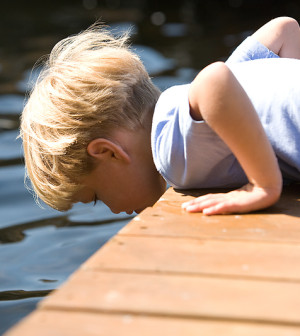- Big Health Care Disparities Persist Across the U.S., New Report Finds
- Teens Often Bullied Online About Their Weight: Study
- Work That Challenges Your Brain Helps You Stay Sharp With Age
- Urine Test Might Spot Head-and-Neck Cancers Early
- Many Seniors Are Overmedicated, But ChatGPT Might Prevent That
- Antipsychotics May Do Great Harm to People With Dementia: Report
- Two-Drug Combo Curbs Drinking for People Battling Severe Alcoholism
- Most Homeless Americans Are Battling Mental Illness
- FDA Recalls Heart Failure Devices Linked to Injuries and Deaths
- COVID Does Not Spur Asthma in Kids, Study Finds
Early Childhood Memories May Fade Long Before Childhood Is Over

People’s earliest childhood memories begin to fade when they’re about 7 years old, a new study suggests.
It’s been known that most adults’ memories extend back to only about age 3. The loss of memories before this age is known as childhood amnesia.
There is increasing evidence that although infants use memory to learn language and other new types of information, their brains are not yet developed enough to retain complex memories, the team of Emory University psychologists said.
To determine exactly when a person’s earliest memories start to vanish, the researchers recorded the responses of more than 80 children who were 3 when they first answered questions from their parents about six events they had experienced in recent months, such as going to a birthday party or the zoo.
The children were divided into different groups, and each group returned at a specific age (5, 6, 7, 8 or 9) to have their memories of these events tested. Children between the ages of 5 and 7 could recall 63 percent to 72 percent of what they had remembered at age 3. But by age 8 or 9, they could recall only about 35 percent of these early events.
The findings were published recently in the journal Memory.
“Our study is the first empirical demonstration of the onset of childhood amnesia,” study leader Patricia Bauer said in a university news release.
“Knowing how autobiographical memory develops is critically important to understanding ourselves as psychic beings,” Bauer said. “Remembering yourself in the past is how you know who you are today.”
The researchers were surprised to find that although younger kids remembered more events from age 3 than older children, the older kids’ recollections contained more information. Possible reasons for this difference may be that memories that endure longer have richer detail associated with them, and that improving language skills help older children better describe the memory and further imprint it in their minds, the researchers said.
The next step in this line of research is to determine the age at which people develop an adult memory system, which is likely between ages 9 and 18, Bauer said.
More information
The U.S. National Library of Medicine has more about memory.
Source: HealthDay
Copyright © 2024 HealthDay. All rights reserved.










